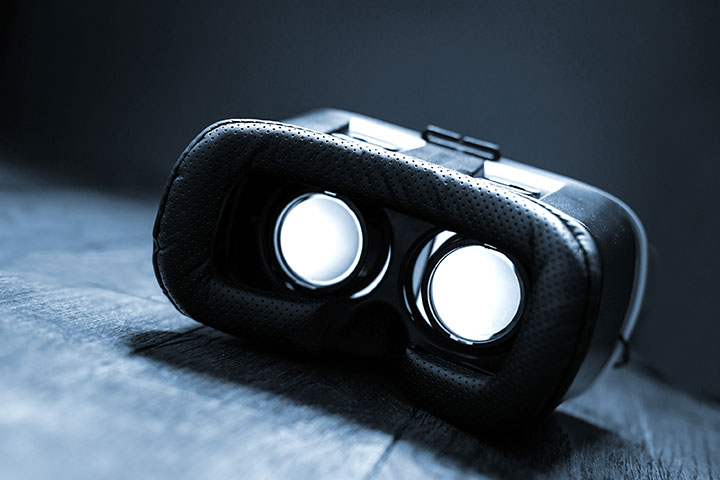Dance floors, deep sea diving and world-class museums are all part of the retirement plan for residents of Legacy Willow Bend. The men and women at this senior care center aren’t wealthy jetsetters. They’re participating in a virtual reality program.
The Dallas-based virtual reality company, Mynd VR, is providing content made specifically to entertain and enlighten the elderly. But the VR has health benefits, too.
Virtual reality is different than, say, watching TV, because it encompasses a participant’s entire view and essentially submerges them in the sights and sounds of a place as though they are really there.
The technology is thus being touted as a way to bring otherwise isolated seniors back out into the world — albeit a virtual world. It’s also being praised for its benefits to the elderly population dealing with Parkinson’s, Alzheimer’s, or vision problems.
George Grishman, a resident of Legacy Willow Bend who suffers from ailing vision, told KHOU the program has allowed him to see more clearly than he has in years. “When I walk past you in the hallway, I can see a figure, but I can’t make out who it is… I think this could help a lot of people like me, and others like people with memory issues.”
We know there are abundant benefits for the mental and physical wellbeing of the elderly by participating in activities and social interactions. But, as we age, partaking in these activities becomes harder, and sometimes impossible.
VR Therapy
Virtual reality could fill that gap by giving seniors access to a virtual world that could lead to improvements in their cognitive abilities. “Neural plasticity is in fact something that exists throughout our lives,” Ping Jiang, a doctoral student at the University of Helsinki explained. “People can change their brains and cognitive abilities no matter how old they are.”
Jiang and her team in Finland are now looking into the direct benefits of VR on elderly adults’ cognitive abilities. “I think we can help people who could potentially suffer from cognitive decline later by keeping them active.”
Dr. Sonya Kim, the founder and CEO of One Caring Team in California, also found that VR helped her isolated and dementia patients by tapping into a world they otherwise couldn’t access. “Aloha VR has helped many of our patients feel reconnected to life. Some of the most challenging dementia patients … have benefited from our program.”
Sometimes, though, the greatest part of VR isn’t showing someone something new, but bringing them back to a special place. Reed Hayes, the co-founder of VR company Rendever, told Marketwatch that when he gave one participant a view of her old home, she was instantly comforted. “She said, ‘This is the most beautiful place in the world.’ It gave her that small window of comfort, and when you work with dementia patients you know how rare those moments can be.”
The VR Market
VR in Nursing Homes
As a recreational device, VR has been slow to capture the public’s attention — perhaps because consumers worry that wearing a bulky VR headset will brand them as unfashionable nerds. Sales in America of VR devices dropped from 3.4 million in 2022 to 2.9 million in 2023.
Nursing homes have been a more successful market for VR devices. Companies that gear their VR products to older adults have marketed VR to nursing homes as a distraction from loneliness and isolation.
The interactive nature of VR makes it more stimulating than watching television. A nursing home resident can use VR to visit Japan, take flying lessons, or hike the Grand Canyon. Their VR experiences encourage residents to interact more deeply with caregivers who guide them through the software. They may also feel motivated to discuss their experiences with other residents. Some software allows a user to interact in real time with children or grandchildren who share the journey from their own homes.
While caregivers can use VR to bond with patients, a caregiver shortage may prevent residents from taking full advantage of VR resources that the nursing home provides. Adult children may want to help their parents master VR technology. Adult children may also want to investigate the privacy policies of companies that provide VR technology to assure that the companies aren’t acquiring sensitive biometric data and using it for marketing purposes.
(This article has been updated July 2024 since it originally published in April 2017)
